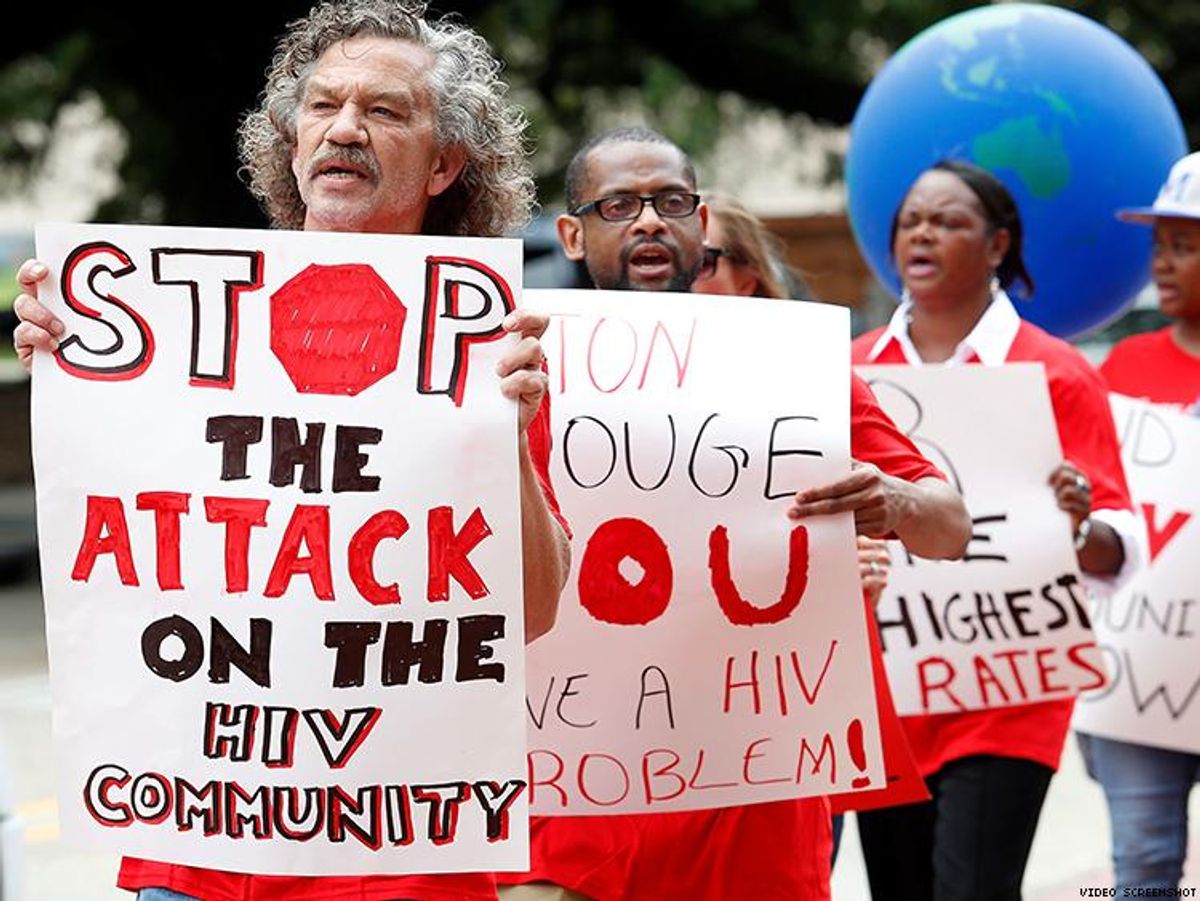When Gov. Jerry Brown signed into law a bill to modernize California's outdated HIV laws, the national movement to end criminal prosecutions based on a person's HIV-positive status achieved a great milestone. The enactment of Senate Bill 239, sponsored by state Sen. Scott Wiener and Assemblymember Todd Gloria, moves California to the forefront in eliminating the stigma that arises for people living with HIV from these types of prosecutions. Lambda Legal is proud to have cosponsored this bill and excited to be a national leader of the movement to end these unjust, unhelpful, and affirmatively harmful laws.
Unfortunately, SB 239 has unjustly come under fire by a loud minority spreading misinformation about the current state of the law and the effects these changes will have on public health. The felony HIV exposure law in California already requires specific intent to transmit HIV; prosecutions under it have been exceedingly rare -- and were usually in conjunction with another crime, prosecutions of which this bill will not affect; and the blood supply will not be any less safe now that SB 239 is law.
To advance public health, the new law in California is based on one relatively straightforward principle: that criminal law should be used only against people with criminal intent. Under this principle, criminal convictions aimed at preventing transmission of a communicable disease -- particularly a sexually transmitted infection -- should require an actual intent to harm the other person.
By now, we all recognize that sexual health is a shared responsibility and that each person must engage in such activities with their eyes wide open to the attendant risks. Because the criminal law is set up on the paradigm of "perpetrator and victim," it is not a good fit for the complex and nuanced nature of decision-making about sexual risk in intimate personal relationships.
No less an authority than the U.S. Department of Justice has recognized this. In guidance on HIV-based criminal laws released in 2014, the DOJ recommended that states only prosecute people who had the intent to transmit HIV or who had perpetrated a sexual assault presenting a significant risk of transmission. SB 239 effectuates the DOJ guidance, making California the undisputed leader in how its criminal laws address disease transmission.
And the DOJ is by far not the only authority to endorse these basic principles regarding use of the criminal law in this context. A wide array of stakeholders, including the Centers for Disease Control and Prevention, the National Alliance of State and Territorial AIDS Directors, the HIV Medicine Association, AIDS United, etc., have endorsed reform of HIV-based criminal laws as an important step in advancing public health.
Given the extensive and impressive list of organizations, public health professionals, health care providers, and individuals who support HIV criminalization reform, it is high time for the LGBT community to come together on this issue. Not just the leadership of the LGBT organizations, but the members of the community writ large need to engage in these hard conversations. For some, this may require examining their own fears and their own (understandable) desire to engage in sexual activity free from risk -- as well as their own part in thereby perpetuating the stigma that continues to surround people living with HIV.
During this time of daily attacks on the LGBT community, on communities of color, on immigrants, on women -- the list goes on -- it is reassuring to know that progress is still being made on at least one of the issues affecting all of these communities. With a model criminal law for addressing disease prevention now enacted in California, we stand poised to bring reform to states all across the country.
As a movement, we have been down this road before and brought sweeping change on a national level. The path to such national change will undoubtedly be different for HIV criminalization reform. It will not happen overnight (though neither did marriage equality), and it may not be as headline-grabbing as other issues. But if we stand united as a community and arm-in-arm with other stakeholders on this issue, as we did in California, I am confident we will change these laws, heal the divides that hinder our community, and move ourselves ever closer to an AIDS-free generation.
Scott A. Schoettes is HIV Project director and counsel in Lambda Legal's Midwest Regional Office in Chicago.


















































































Fans thirsting over Chris Colfer's sexy new muscles for Coachella